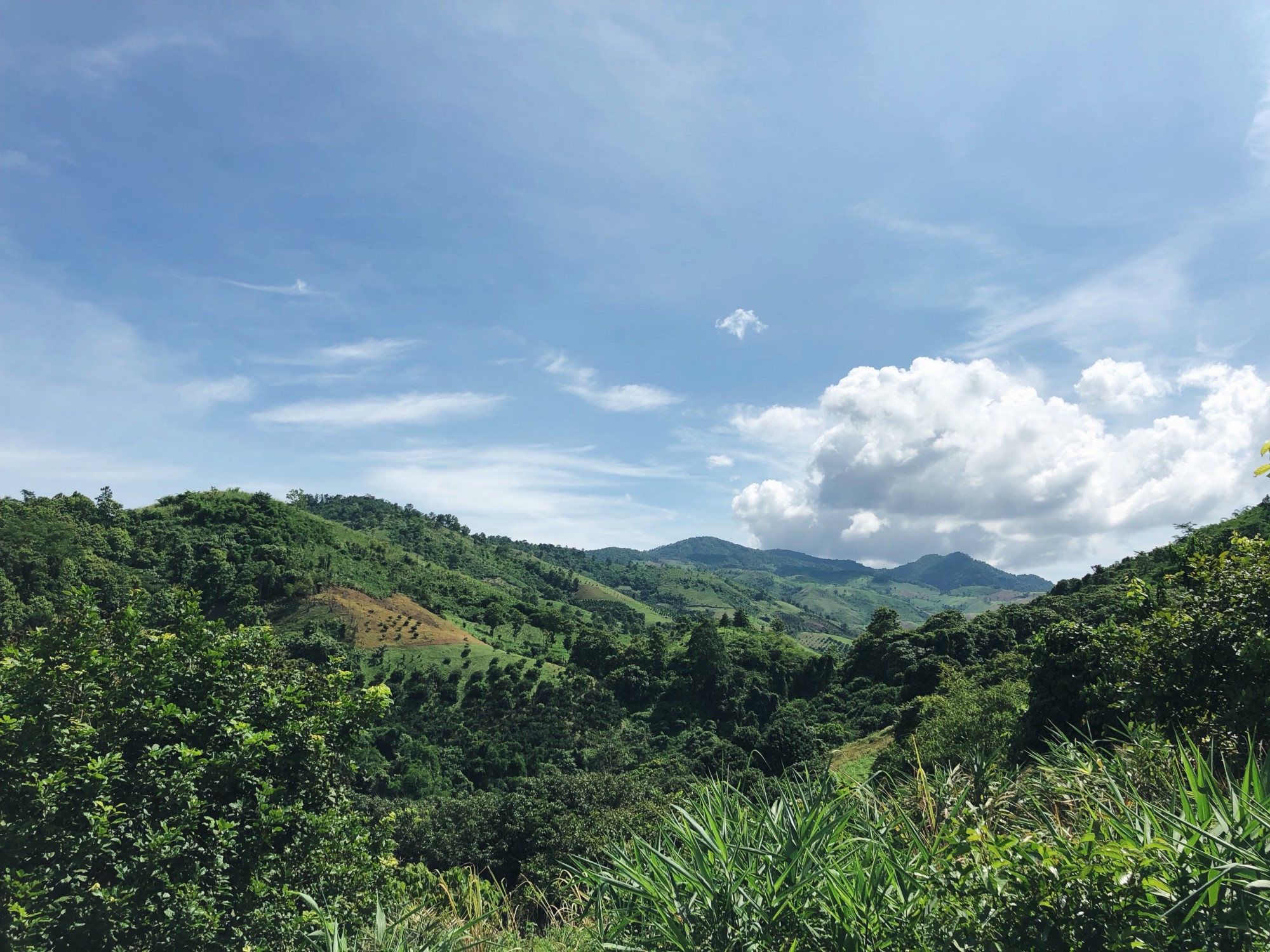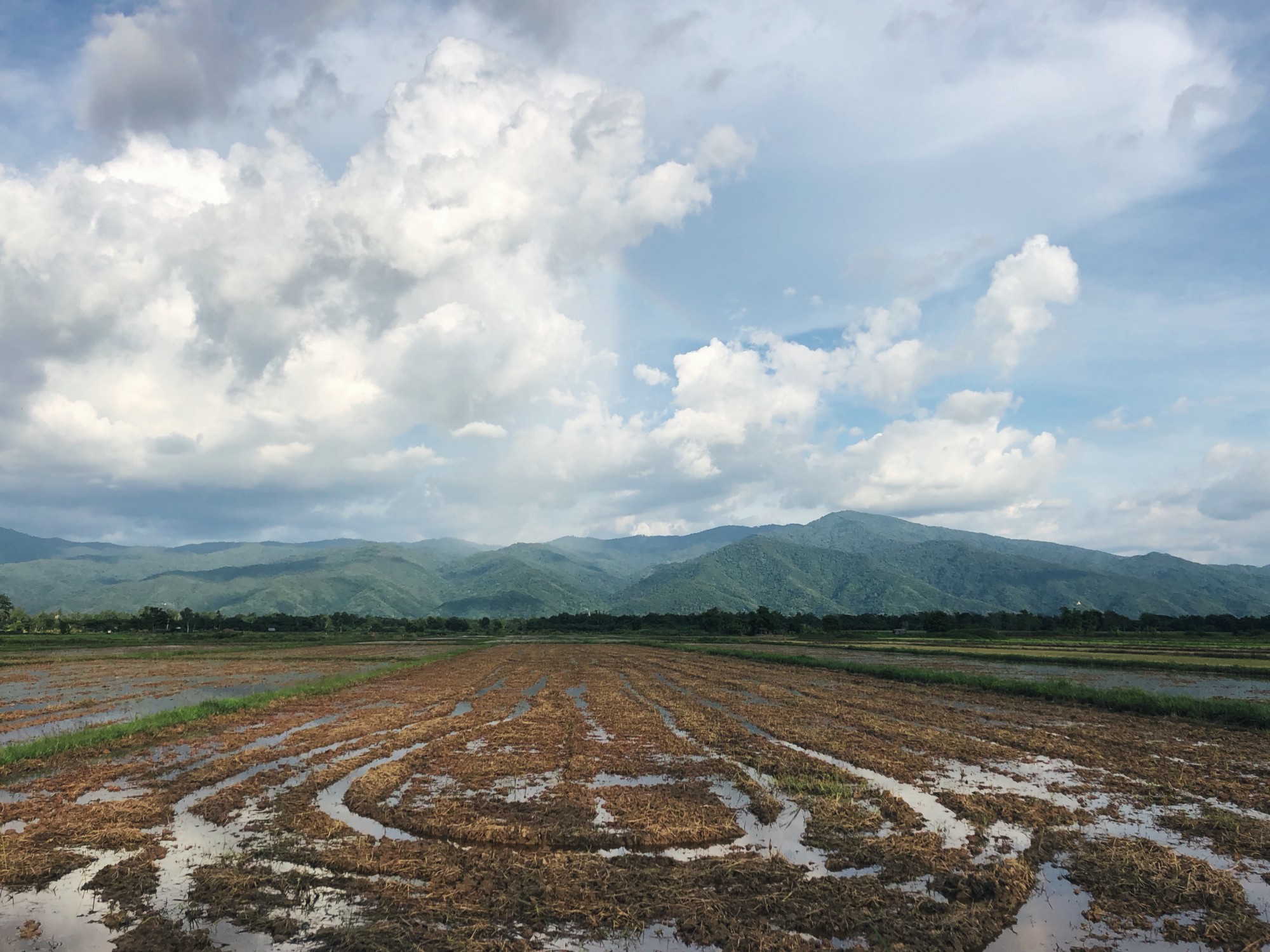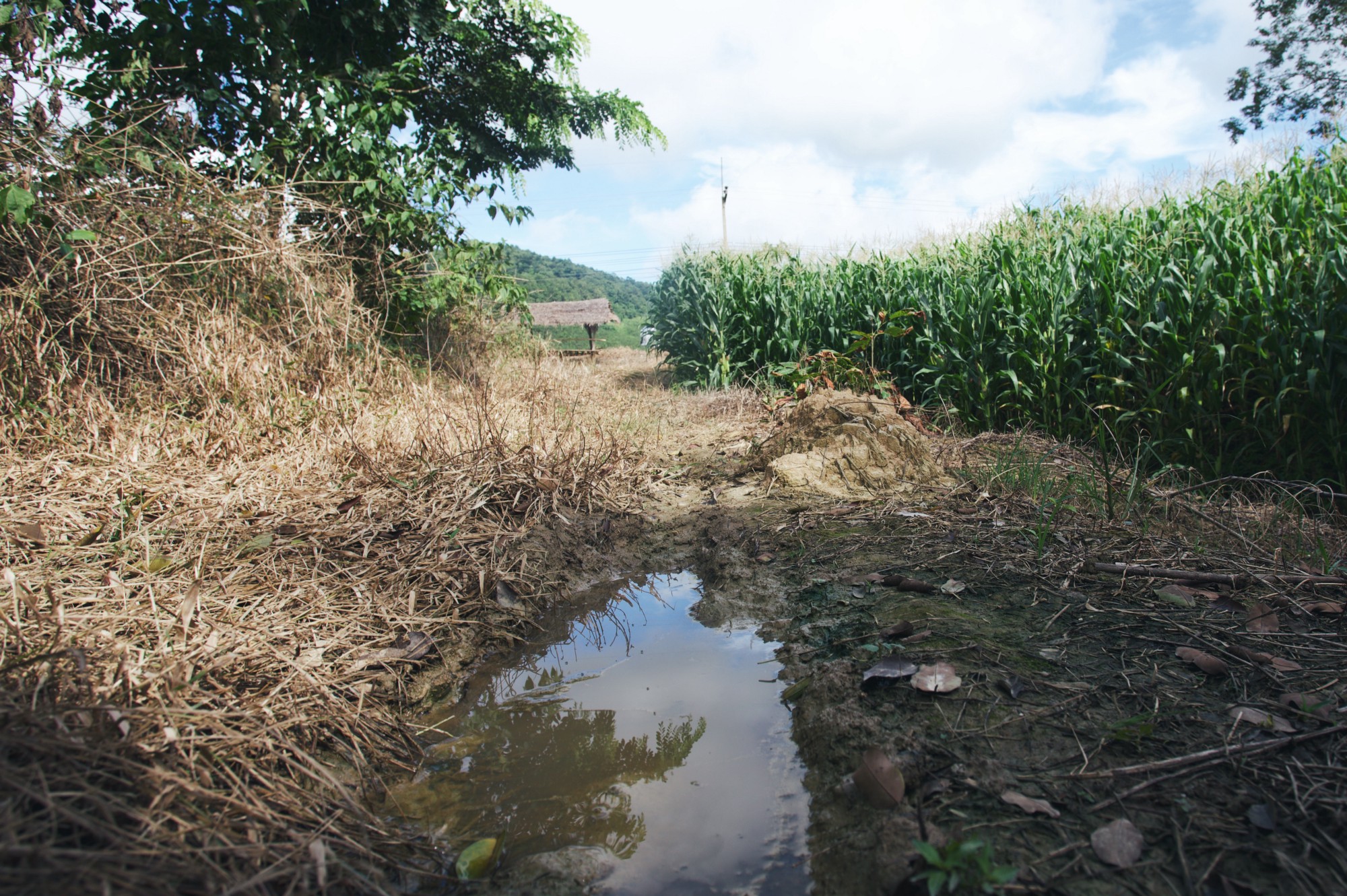Finally Free
I went to Southeast Asia to see where LiNK’s Field Team rescues North Korean refugees. Here’s what I found…

Refugees must cross terrain like this to reach safety in Southeast Asia
We’re on a dirt road weaving around potholes.
On one side, the rice reaches to the horizon. On the other, corn stretches higher than the van.It feels like rural Iowa, but hotter and with palm trees.
The van lurches along, swaying back and forth with the ruts in the road. We’ve been driving for five hours through dense jungle and villages so small that you’d miss them if you blinked. It’s starting to seem like we’re in the middle of nowhere.
We finally coast to a stop and LiNK’s Field Manager points to a steep ravine.
“We’re here,” she says.

“We’ve rescued North Korean refugees right here,” she continues.
For the next hour we stop every couple hundred yards. She points to a field or a patch of trees and recounts stories.Stories of screeching to a stop, sliding open the door, and pulling North Korean refugees into the van.Stories of refugees so dehydrated they barely have the words to ask for water.
Stories of people collapsing in exhaustion, caked in mud and peppered with bruises from the long trek through the jungle.“What do refugees do once they’re in the van?” I ask.“Some start crying, the tears stream down their cheeks. They’re so overwhelmed that they finally made it. Others flash smiles in triumph, soaking in every second.”
I realize we’re not on just any dirt road.

This road meanders along the border. You can’t see the line but throw a stone in a certain direction and it’s likely to land in another country.For North Korean refugees this border means everything. Cross it, and they’re safe. The North Korean regime cannot have them arrested and forcibly returned.The danger is finally gone — evaporated in the sweltering heat and suffocating humidity of Southeast Asia.
For the first time in their entire lives: they are free.
It’s a week later and I’m sitting in an air-conditioned coffee shop that sells overpriced lattes.
I’m back in South Korea to interview a North Korean woman who reached freedom through LiNK’s rescue network.It took her four tries to make it to South Korea.She was arrested twice at the North Korean border and once in China. Each time the punishments seemed unimaginable, but they’re terrifyingly common.She recounts the horrific torture she endured for trying to escape. The way they slammed her head into a nail on the wall. The torment of witnessing cellmates whither away from starvation. The heartbreak of watching her 5-year old daughter being beaten in front of her.I’m trying hard to collect the facts. But hers is one of those stories that hollows you out. Leaving you nauseous and numb.The conversation dwindles. I can see the toll that sharing these stories are having. Her shoulders start to slump. She barely looks up to make eye contact anymore.I pull out my phone and show her a video. Her eyes flash with life.

20 seconds pass and she’s still glued to the phone.
It’s a video of that dirt road. And the exact place where she finally reached freedom. There are corn stalks on the left and a small farmhouse hidden behind palms leaves on the right.“Do you remember this place?” I ask.“How could I ever forget it?” she says without looking up.She’s smiling for the first time all afternoon.
A North Korean Father Risks Everything for Family | Doohyun’s Story
I lived in North Korea for over 20 years, and for much of that time, I believed my life was normal. I grew up in a big city by the river. When the wind blew, I could smell the water on the breeze, and on holidays, I played along the banks with my friends.
The river ran along the border between North Korea and China. I could see across the water into a different world–one where cars lined the streets, and buildings stretched high into the sky.
But I didn’t realize that life should be different, until the day they took my father away.
My father was a great businessman. He provided for our family despite being forcibly discharged from the military when his Minister of Defense was executed by Kim Il Sung. Labeled as a “traitor,” he was banned from decent jobs and opportunities.
Still, my father was a clever man and found success within the private market system that many North Koreans rely on to survive. Until one day, the police came to investigate him.

Without reason or warning, my father was arrested and imprisoned. They tortured him for a year. When he was released, my father weighed only 66 pounds.
Even after surviving the unimaginable, he was defiant. He wrote 20 pages of complaints to the Central Party about the human rights abuses he endured. My family was terrified of the consequences, but we couldn’t stop him. He fought for his voice to be heard.
On a warm Spring day, a Mercedes-Benz, license plate number 216, arrived at our home. February 16th was Kim Jong Il’s birthday, and cars with this number were only given to his closest aides. My father spoke with the man for hours about his letter. The man apologized and promised something like this wouldn’t happen again. This gave us a bit of hope for the future – for the possibility of change.

But the man left for Pyongyang. And then the police returned. I never saw my father again.
For two years, my family and I lived in unknowing agony, receiving no news on my father. Eventually, we heard from my father’s friend, who was a police officer, that he had passed away in prison.
At the very least, we wanted to send him off properly, so we asked that same friend how we could get my father’s body. Three days later, he returned. He told us they would not return my father’s body. My father had been sentenced to eight years in prison. He’d passed away after two. He still had six more years to serve – as a dead body. As a corpse.
For the first time I wondered whether this was the way normal people lived.

In 2009 I decided to escape from North Korea. Life had become near impossible for me after my father’s death, and I continued to face discrimination due to our family’s status in society.
By then, I had been married to my wife, Jiyeon, for two years. Most of our relationship before marriage was through the phone, because we lived far apart, and traveling in North Korea is difficult. So we called each other every night and talked for hours.
Now, I didn’t know if I was going somewhere she would never be able to reach. I told her it was a business trip. Two weeks. I’ll just be gone for two weeks.
She still cried at the train station, thinking about those two weeks. I couldn’t cry with her because then she would know the truth. So I boarded the train without a word, and watched it take me away from her.

From the moment I escaped North Korea, it felt like I was being chased by a grim reaper. There were multiple close-calls where I felt death breathing down my neck.
I was once hiding in a corn field near the Chinese border. Lying on my stomach, I watched soldiers patrol the area when suddenly, one of them walked towards me. It was too late to run or hide.
I had brought poison with me in case something like this happened - I knew it would be better to kill myself rather than be captured. But as I prepared to take the poison, I thought of my wife. I thought about how she would never know what happened to me.
In that moment of sheer terror, I heard the sound of water. The soldier stood right beside me but he hadn’t seen me. He had only walked over to relieve himself. For the next few minutes, I couldn’t move. The soldier had left, but my body held onto the terror of that moment. I remained hunched and hurried for the rest of the journey.

Eventually, I made it safely to South Korea. I started working as soon as possible – 12 hour days to pay back the broker fee, and save up money for my wife’s escape. My schedule was just working and sleeping, working and sleeping. It was hard, but for the first time in a long time, I had hope.
I was able to find a broker who put me in contact with my wife. It had been ten months since I’d defected at that point – ten months of her not knowing whether I was dead or alive. The call couldn’t be made in the city because the signal could be intercepted, so my wife and the broker hiked to the top of a mountain.
| When we heard each other’s voices again, all we could do was cry. But we didn’t have much time, and so I asked her, you’re coming, right?
She said she was.
On December 27th, 2011, Jiyeon crossed the river to escape North Korea on the same route that I took.

As soon as my wife arrived in South Korea, I went to meet her. I was so excited. I couldn’t stop crying. When my wife came into the room, she was crying too – but do you know what’s the first thing she did when she saw me?
She punched me – crying, calling me a liar. And I deserved it.
We live in Utah now with our two beautiful sons. We go fishing, camping, and enjoy the outdoors together. Every time I see them, I realize I’m living in a different world, one where we can finally dream and decide our own future.
This is the life I’ve made for my children. This is the life my father envisioned for me and for all North Koreans when he made his act of defiance. My father died fighting for his voice to be heard – and now, finally, he’ll be heard by the world.

Doohyun risked everything to create a future where his family could live together in freedom. Their story isn’t unique - there are many more North Koreans waiting and hoping for the day when they can reunite with loved ones. Help make freedom part of every North Korean’s story.
Give today
Since resettling in the United States, Doohyun has completed his undergraduate studies and now works for a North Korean human rights organization. He considers helping the North Korean people to be his life’s mission, continuing his father’s legacy.




